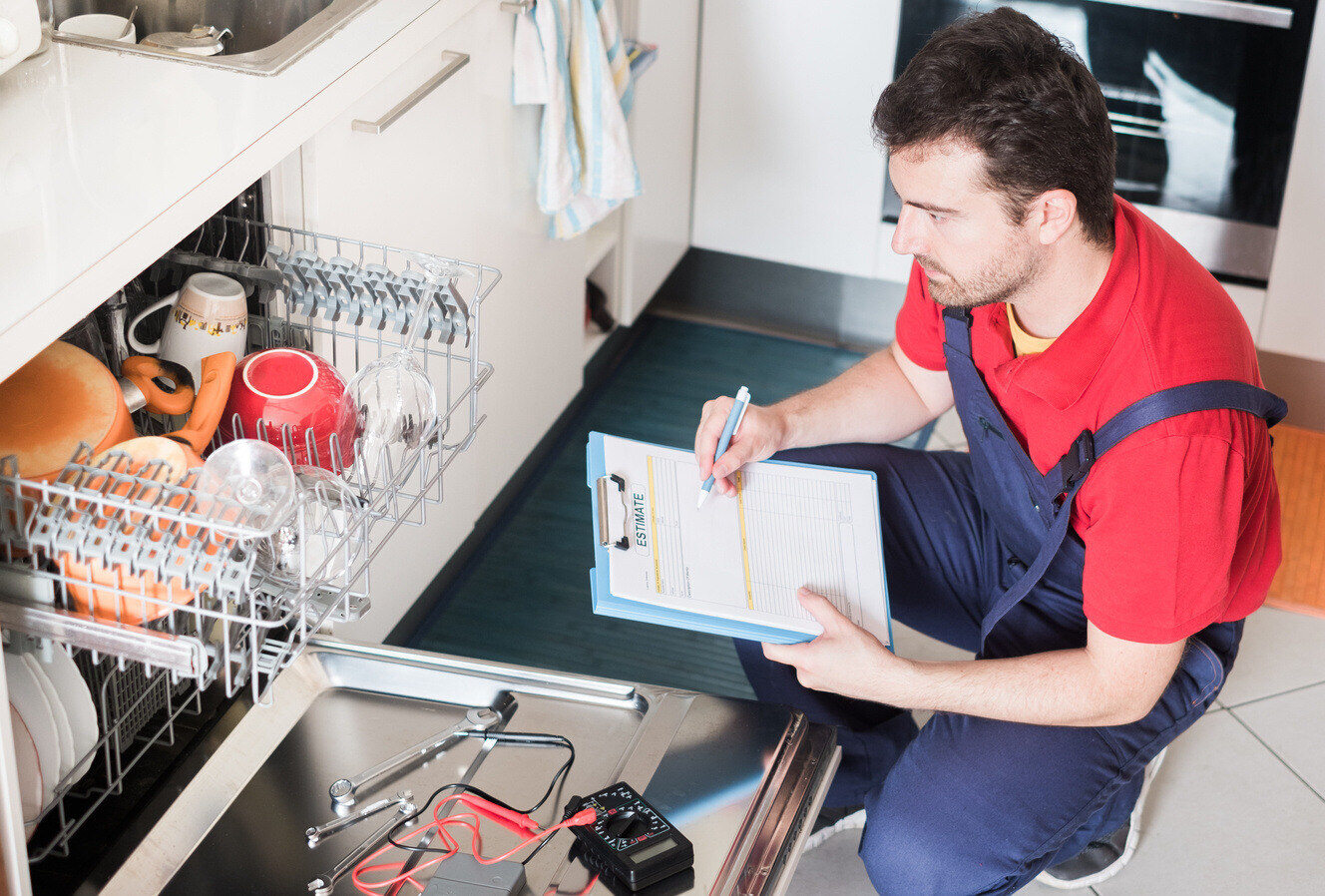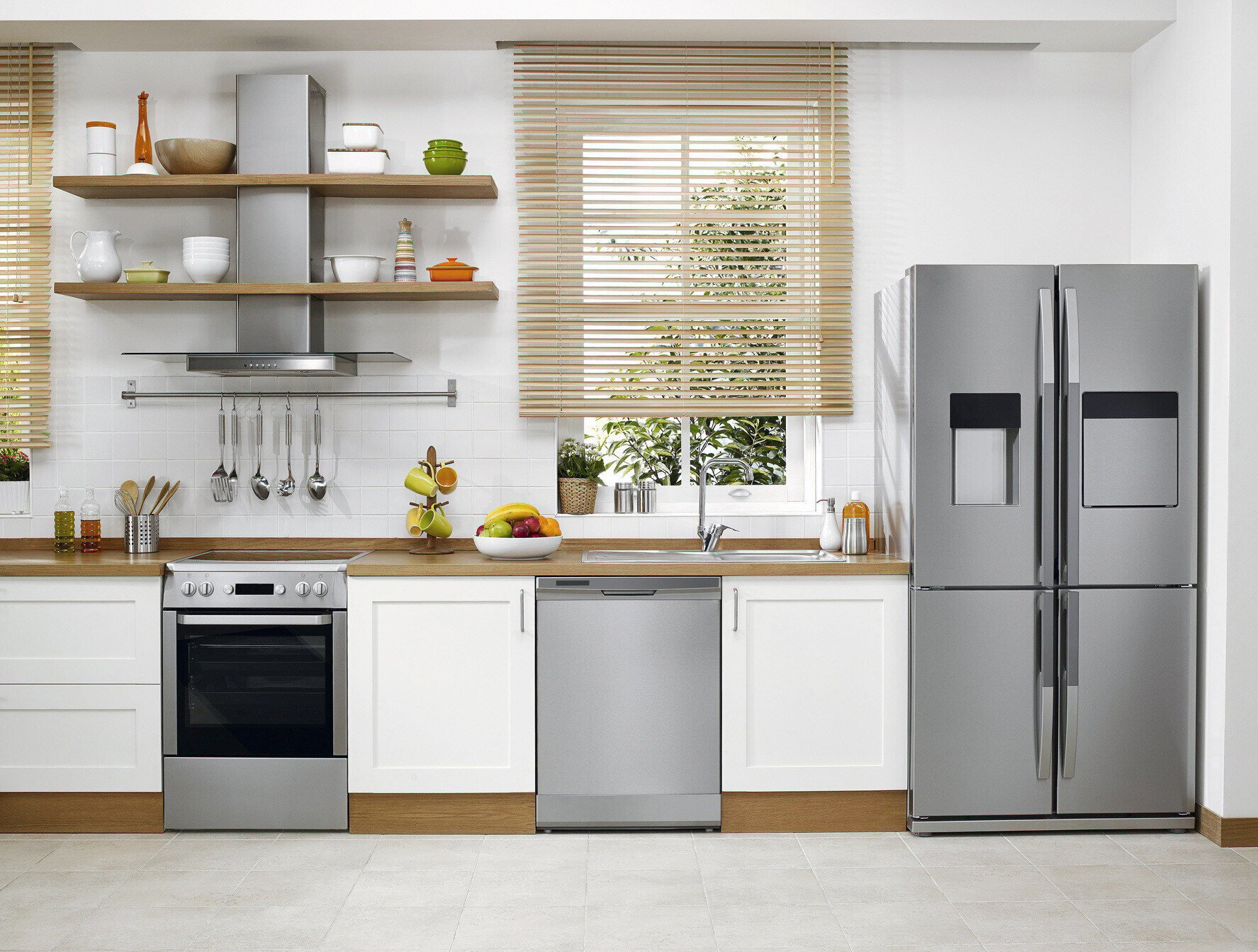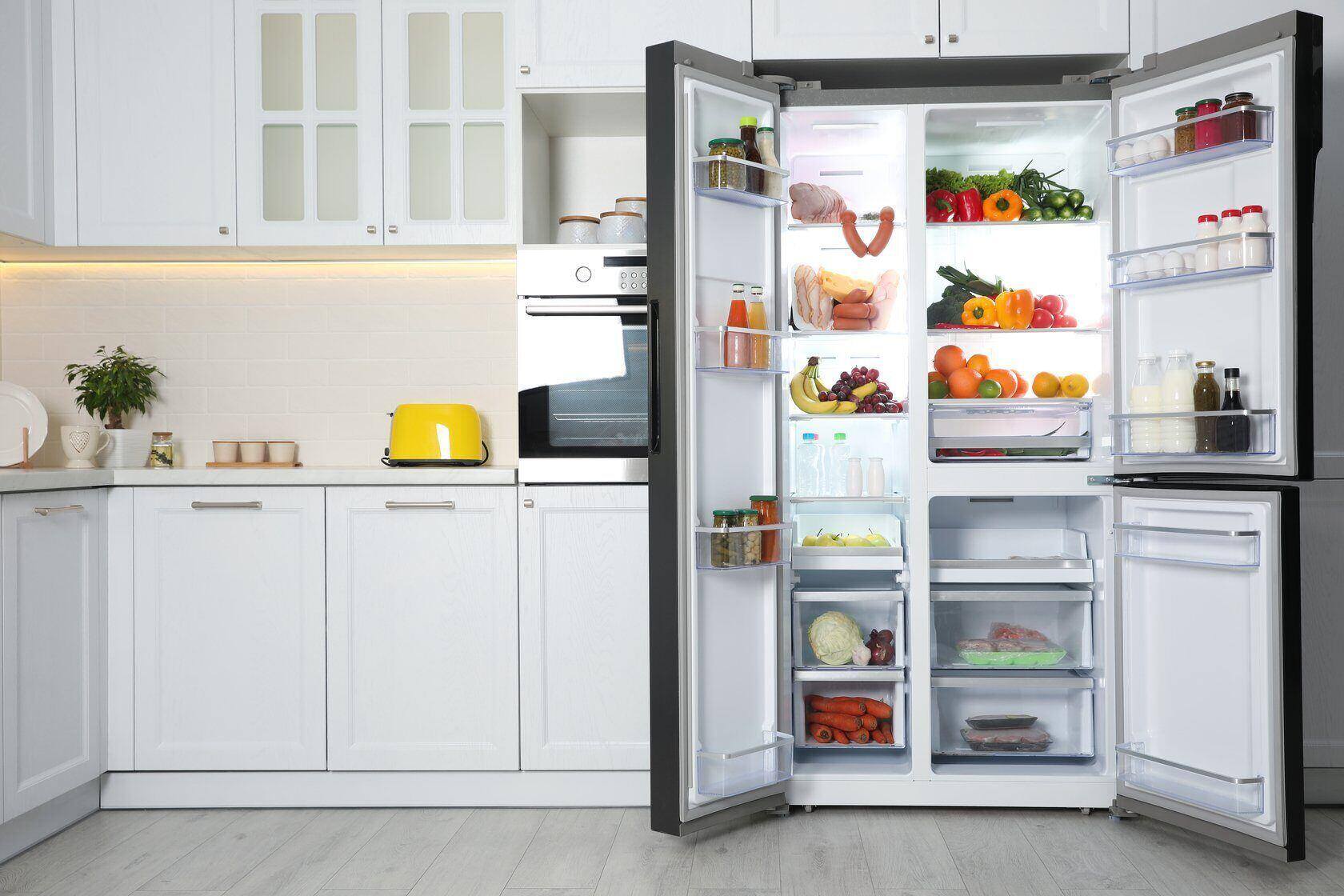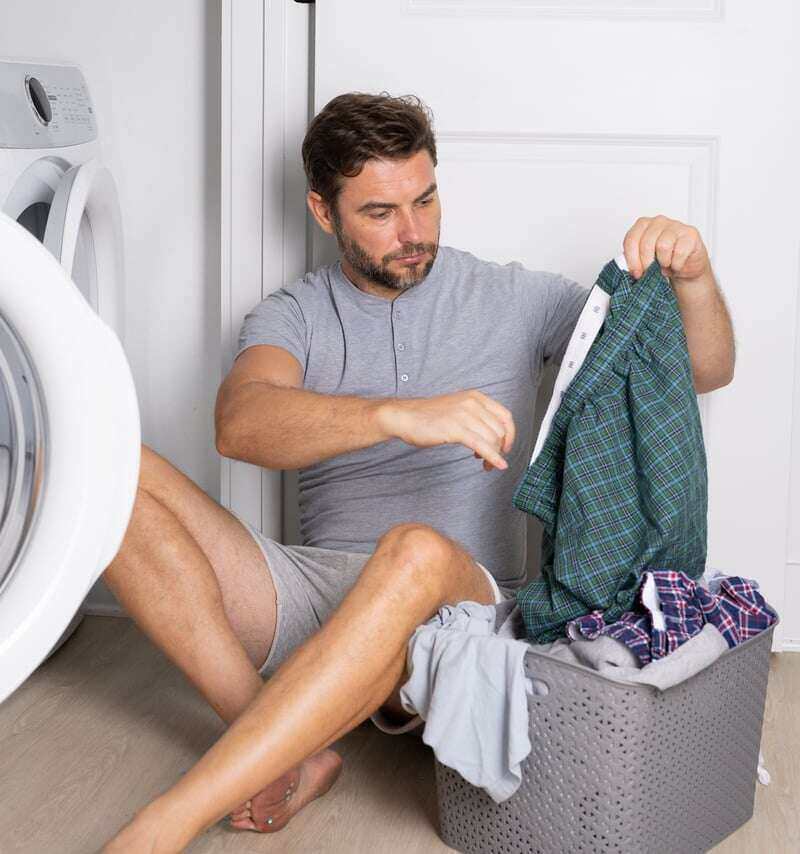What is home appliance warranty and what does it cover?

An appliance warranty is exactly what it sounds like. It is coverage for your beloved appliances if something breaks, or they stop working. This is why, when you purchase an appliance, you are often offered some kind of warranty plan with the option to purchase extra protection. Before we continue, it is important to distinguish the difference between a manufacturer’s warranty and an extended warranty option.
With a manufacturer’s warranty, you’ll likely get your appliance fixed or replaced if it stops working within a certain time frame. For instance, if a button on your microwave is broken, it may be replaced. Or maybe your refrigerator has a tray that jams every time you try to put your favorite ice cream in it. These are the kinds of things that your manufacturer’s warranty will cover. However, it is important to note that your manufacturer’s warranty typically expires after one year.
This is where an extended warranty or a warranty service plan comes into play. With an extended warranty, you can give yourself protection and peace of mind long after your manufacturer’s warranty expires. So, if you have a manufacturer’s warranty on your oven and one week after that expires, your oven stops working, there’s no need to figure out all microwaveable meals for your family. Instead, take advantage of your extended warranty plan and get it fixed as soon as possible. An extended warranty gives you options and helps you avoid large, unexpected expenses. It should also be noted that an extended warranty is for one item. When you get a Cinch home warranty* plan, it will cover various appliances and systems.
What does an appliance warranty cover?

Appliance warranties are meant to protect the appliances in your home experiencing mechanical failure due to normal wear and tear. Even the best extended appliance warranties will not offer you the same kind of comprehensive protection that a home appliance warranty plan will. Some appliance extended warranty companies will cover replacement parts, but not things such as repair. When you have appliance warranty service, your coverage also pays for appliance repairs which is an important thing to consider when doing appliance warranty comparisons.
When looking for warranty coverage for appliances, it is also important to know the types of things that are covered in a standard appliance warranty agreement. A good way to think about home appliance warranty services is that they are there to protect the appliances inside your home. Some of the commonly covered appliances are the following:
- Built-in dishwashers
- Built-in food centers
- Built-in microwaves
- Built-in trash compactors
- Clothes dryers
- Clothes washers
- Cooktops
- Freestanding ice makers
- Ranges
- Range exhaust hoods
- Refrigerators
- Wall ovens
Does a home warranty cover appliances?
Home appliance warranties are meant to protect you and your budget from costly repairs and replacements that happen from normal wear and tear.
Home warranty coverage does indeed cover appliances. In fact, home warranty coverage and home appliance warranty coverage are frequently used interchangeably. The short answer is that the main purpose of home warranty appliance is to cover the appliances in your home.
Are manufacturer appliance warranties transferable?
Can home warranty protection be transferred from one homeowner to another? This is a very common question. If manufacturer warranties are transferred over to a new owner, it would make life a whole lot easier for a lot of new homeowners, right?
This is important information to know when you are deciding on the amount of insurance coverage that you need for the appliances in your home. Unfortunately, most appliances, such as refrigerators, microwaves and ovens, do not have transferable manufacturer warranties. As a matter of fact, most major appliance companies have language in their warranties that voids the remaining time when ownership changes.
So, as you celebrate closing on your new home, make sure that you look into a home warranty solution. It is important to review the manufacturer warranty for your household appliances when you move in so that you have the coverage you need for all of your most important appliances. Once you purchase a new home, even though your manufacturer warranty probably won’t come with it, you can look into appliance warranty options to protect your appliances and your budget from costly repairs. This is where a home warranty company like Cinch Home Services can be incredibly useful. For an affordable monthly rate, you can have the peace of mind and protection you need to avoid costly repairs.
Appliance warranty reviews

When we are shopping for a new car, we often spend time reading customer reviews before making a purchase. If we are looking for new furniture for our home, reviews are important to guide us and prevent us from purchasing an uncomfortable sofa. Well, you should place the same amount of importance on reviews when you enter the home warranty space.
When shopping for a home warranty company, it is always smart to shop around to ensure that you are getting the best coverage at the best price. With so many options at your fingertips, the last thing you want to do is overpay for coverage you don’t need. Finding the right home warranty solution takes time. However, when you’re patient and thorough with the process, you’ll only set yourself up for success in the long run.
With Cinch Home Services, you can bet that you’re getting quality home warranty options at an affordable rate. But don’t just take our word for it, our stellar ratings on both ConsumerAffairs and Trustpilot further back us as a reputable company. These are two of the most trusted sources for appliance warranty reviews in the industry. We are looking forward to working with you to give you peace of mind and help you save money.
Here's what some of our satisfied customers had to say about their experience with Cinch:
Anthony from Maryland said:
"The quick turnaround times have been very nice with Cinch. I put in a claim for the icemaker in our refrigerator. I did it on either a Saturday or Sunday and I heard from them on Monday. A contractor came out the next day, identified what was needed and what were the parts. They were very professional and did what they needed to do. From the time I filed the claim until everything was done and wrapped up, it was a week or less, which was very quick, especially sometimes these things can extend out for a while. I would definitely recommend and tell others that they hire good quality professionals. The timeliness is very effective and convenient too. They work with your schedule."
Rose from Virginia wrote:
"The customer service of Cinch was nice, quick and knowledgeable. It was an easy process when I submitted a claim at the end of February. A guy came in the next day and took a look at the refrigerator and then told us that our cooling system was not functioning the way it was supposed to be. He ordered us a part and gave us two weeks for when he would be back to install the part. Came back in two weeks and installed the parts and left."
Nelson from New Jersey stated:
"I have had great results from Cinch and I would recommend them to a friend. I had a claim for the clothes dryer and when the tech came, it started working again. But he was able to find out that it does that when the motor is getting ready to go out. So, he was able to explain to us that it was the motor. When it starts going out, sometimes the dryer doesn't work. And then you try to use it again, and it starts working again. So, Cinch took that information and took care of my dryer. They were quick. The only thing I had to wait for was the new motor that was installed to come in. But it came within a week."
Balvinder from Virginia wrote:
"The guy who came for the microwave and did the work was amazing. He was very humble. The motor failed and he put a new motor in front of me. One of the parts was not there with him, so he had to go and get it, and then came the next day morning and fixed it."
Which appliances need extended warranty?
When you are looking to purchase a home warranty plan, it's important to think about which appliances need it and which don’t. When deciding if you should buy warranty protection or not, there are several things to consider. For starters, how much does a home warranty plan cost? Typically, home warranty plans can cost anywhere from $25 to $60 a month. If this is something that you can fit into your budget, you should consider it so that you can avoid unexpected expenses.
When deciding what appliances need extra protection and which don’t, it may be as simple as asking yourself, “What are the appliances you simply can’t live without?” Are you part of a family with kids and you wash a few loads of laundry per week? If so, then the washer and dryer are essential. On the other hand, if you have a business where you cook and ship meals to customers from your home, then the oven is something that you absolutely can’t live without. Based on your lifestyle and needs, different appliances will hold different weight.
Although many household appliances are becoming more efficient than ever, they aren’t necessarily becoming cheaper. So, for most of us, having the added protection of an extended warranty is well worth the cost. We recommend that you purchase extended warranties on all your major appliances to protect your budget. Things such as your washer and dryer and your refrigerator are valuable appliances that you rely on daily and can cost you a pretty penny to fix.
Kitchen appliance warranty

The kitchen is an important part of most of our homes. Whether you’re a great cook or not, it is often where we have meals with family and friends and form bonds that matter to us.
With the Cinch Appliances plan, your major kitchen appliances will be covered regardless of their age or make. When it comes to your kitchen appliances, items that are currently covered under warranty include cooktops, dishwashers, built-in microwaves, refrigerators, built-in trash compactors, free-standing ice makers, and wall ovens.
When shopping for home warranty protection for your kitchen appliances, your best bet is to go with our Appliances plan. With a Cinch Appliances plan you could potentially save hundreds to thousands of dollars in repairs and replacements.
Microwave warranty
Smaller appliances, like microwaves, also may be a good bet for home warranty protection since many people use it so often. Daily use means wear and tear over time. If you do decide to purchase an extended warranty for your microwave, make sure you know the microwave warranty period and are ready to add additional coverage when it is over.
Whether you have a small, energy-efficient microwave or a larger combined microwave and oven, having a warranty on your microwave could save you some major cash.
Refrigerator warranty

Just think, how many times per day do you go in and out of your refrigerator? It is undoubtedly one of the most used appliances in every home.
No matter if you are a Michelin-rated chef or TV dinners are more your style, having a functioning refrigerator is essential for all of us. Whether you prefer a French door, side-by-side, or a built-in style of refrigerator, having the right coverage could potentially save you a lot of money and hassle if your refrigerator starts to act up. Top refrigerator brands often come with a one-year warranty, so when considering the right coverage for your needs, it is important to know the extent of your current refrigerator coverage.
Although refrigerator warranties are helpful, their level of coverage is not sufficient protection for all sorts of situations. Manufacturer warranties are typically limited to defective products and do not cover repairs that stem from other factors. Especially if you have a garage or outdoor bar refrigerator, looking into a quality appliance warranty on top of your manufacturer warranty is a great idea so you don’t end up on the hook for pricey repairs or replacements for your refrigerator.
Oven warranty
Whether you prefer electric, gas, convection or conventional ovens, nearly all of them will come with a 1-year warranty. In the excitement of adding a new appliance to your home, what can get lost in the fray is that appliance warranties don’t keep your new oven fully covered. When deciding on the right insurance coverage for your oven, it is important to know what your manufacturer’s warranty does not cover. Major brands typically do not cover things such as:
- Appliances used in a commercial setting
- In-home installation
- Service to appliances due to improper installation
- Service for damage caused by not using manufacturer parts
- Cosmetic damage
When considering the right oven warranty coverage, knowing that the manufacturer warranty is typically very limited and designed to protect you from faulty products is important to understand. Although an oven warranty can be useful in some circumstances, additional coverage, such as an appliance warranty, can cover repairs that arise that are either outside the scope or time window for your warranty. Purchase some peace of mind so your oven is covered.
Dishwasher warranty
From convenience to environmental impact, today’s dishwashers are more in use than ever before. With efficiency also comes an increased risk of malfunctions. Most of the top dishwasher brands come with a standard 1-year warranty that will protect you from some issues that could arise with your dishwasher. However, these warranties are specifically designed to protect consumers against faulty products and do not offer comprehensive protection for your dishwasher. Even though you are excited about your new purchase, if there is improper installation or normal wear and tear, you may not be covered by your warranty and could end up on the hook for expensive repairs or replacements to your dishwasher.
When looking into what your dishwasher’s manufacturer warranty covers, make sure that you have appliance insurance to make up for that difference and keep your kitchen protected. As dishwashers get more advanced, they become more difficult to repair, so make sure that you have the coverage that you need to ensure your dishwasher stays running at its peak performance all year long.
Washer and dryer appliance warranty

Getting a new washer and dryer can make a world of difference in the way that a household operates. From smart washers and dryers to combos where you don’t even have to remove your wet clothes, technology is making the burden of cleaning clothes easier and more efficient every day. Unfortunately, with the advances in technology, you also have more potential things that can go wrong with your appliance. This makes it imperative that you know what your appliance warranty covers so you can have the protection you need to keep your clothes clean.
Major washer and dryer brands typically offer a 1-year manufacturer warranty with purchase and options to extend that further. Although these washer and dryer warranties are beneficial in protecting you from issues that arise from defective equipment, they don’t protect your investment in your home from much beyond that. If you want your washer and dryer to be protected from issues such as normal wear and tear, you should augment your warranty coverage with an appliance warranty that can bridge that gap and keep you and your budget protected from costly repairs and replacements.
When you upgrade your washing machine, the first thing that sticks out is the time you can save with smart functions that detect the size of the load and use a more precise amount of water and time. However, with increased functionality also comes increased complexity in things that can go wrong with your washing machine. When you purchase a washer from one of the most popular brands, it will most likely come with a 1-year warranty. Although this protection is a good way to guard against a defective machine, warranty coverage does not cover things such as:
- Normal wear and tear
- Installation damages
- Damage caused by non-manufacturer parts
- Improper use damage
When considering your warranty or even purchasing an extended warranty on your washing machine, knowing your options is essential in making the right decision. Make sure that you investigate what your specific warranty covers and that you have the right coverage to protect your budget from costly repairs and replacements that are not covered by typical manufacturer warranties.
*For NJ customers: The product being offered is a service contract and is separate and distinct from any product or service warranty which may be provided by the home builder or manufacturer.
Home appliance insurance is a service agreement that provides coverage for repairs and replacements on home appliances due to normal wear and tear.



